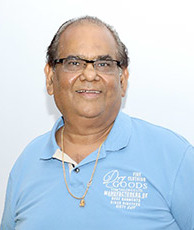A Quote by Jonah Hill
You have more of a responsibility to make the audience laugh. In comedy, we do have to say, "All right, it's been two minutes in the film. We need another laugh here." With drama, there's no pressure in that regard. It's a different kind of pressure, but it's not like we need to make someone laugh.
Related Quotes
The best way to make friends with an audience is to make them laugh. You don't get people to laugh unless they surrender - surrender their defenses, their hostilities. And once you make an audience laugh, they're with you. And they listen to you if you've got something to say. I have a theory that if you can make them laugh, they're your friends.
Drama can feel like therapy whereas comedy feels like there's been a pressure and a weight lifted off of you. You come to work and you laugh all day, you go home and you feel light and there's a certain feeling when you're sitting with the audience and they leave after 90 minutes and it's just pure escapism and they're happy.
The first purpose of comedy is to make people laugh. Anything deeper is a bonus. Some comedians want to make people laugh and make them think about socially relevant issues, but comedy, by the very nature of the word, is to make people laugh. If people aren't laughing, it's not comedy. It's as simple as that.
We are a nation that has always gone in for the loud laugh, the wow, the yak, the belly laugh, and the dozen other labels for the roll- em-in-the-aisles gagerissimo. This is the kind of laugh that delights actors, directors, and producers, but dismays writers of comedy because it is the laugh that often dies in the lobby. The appreciative smile, the chuckle, the soundless mirth, so important to the success of comedy, cannot be understood unless one sits among the audience and feels the warmth created by the quality of laughter that the audience takes home with it.



































